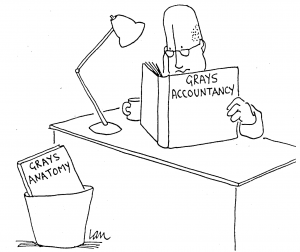The pressure on GPs is evident across the NHS and a recent study shows that their numbers have actually fallen for the first time since 1960s. NHS England are calling on GPs to form new Primary Care Networks which they say will solve many of the current problems.
Being a family GP is not as desirable as it used to be. Patient demand is rising. Millions more are living with chronic conditions. Our needs as patients are more complex and often dealing with them won’t fit into the average 10 minutes consultation time – the shortest in Europe.
GPs don’t shy away from the challenge, but often when their patients talk about their symptoms they are also describing society’s ills; family breakdown, money worries, social exclusion, which need a wide set of policy answers, not simply a prescription.
We now know that austerity has blunted our response, limited the treatment options and caused thousands of unnecessary deaths. Delays in mental health are dangerously high. Drug and alcohol services have been cut back, social care is by popular view on its knees and spending on preventing illness has gone down when it needs to be a high priority.
Its easy to see how a GP could be overwhelmed and demoralised and it’s the reason why many are leaving the profession.
Plans to raise GPs numbers have been tried but have so far failed. Despite a government promise in 2015 to bring in 5,000 more GPs, data from NHS Digital shows that there are now 1,180 fewer than three years ago.
PRIMARY CARE NETWORKS
In an attempt to lift the pressures on GPs, NHS England are reorganising primary care to help spread the workload. NHS England claim that the process is well underway.
“practices have begun working together and with community, mental health, social care, pharmacy, hospital and voluntary services in their local areas.”
GP leaders are being asked to merge their practices together to serve larger groups of patients. These new Primary Care Networks will care for 30,000-50,000 patients each.
The vision is that GPs will work more closely with a wider group of health professionals including pharmacists, district nurses, community geriatricians, physiotherapists and podiatrists in ‘expanded neighbourhood teams’. New money is already being targeted at these areas.
NHS England believe that introducing new ways of working will help to manage patient demand but also create better organised care that is more ‘personalised’ and more often sited in the community.
Commentators acknowledge the potential, but many point to the fact that there is a real risk that a lack of staff will derail the plans.
A BOOST IN STAFFING?
The NHS needs 7000 more GPs, but most of the health professions delivering care alongside GPs are also heavily overworked and understaffed. Nursing unions have pointed out that the capacity of community services has fallen sharply in recent years.
There has been a 50% fall in the number of district nurses between 2010-17.
There are a fifth less health visitors since 2015 and a 12% drop in mental health nurses over the last decade.
While the number of GPs has fallen the number of patients has risen by 16% more patients over the last seven years.
Gaps in other key area like social care have cranked up the pressure on primary care. Cuts in social care funding to local authorities have led to a 25% drop in the number of people that are accessing these services.
GPs confront the fallout from these vanishing services on a daily basis, dealing with patients whose health problems have not been caught early and doing what they can to help patch together the right care.
ENOUGH FUNDING?
NHS England acknowledge the staffing crisis and have set a goal to boost the primary care workforce by 20,000 in the next five years. Seventy per cent of the funding for these posts will come from government – £891 million of new annual investment by 2023/24, but PCNs must find the rest.

However, introducing PCNs will not bridge the existing capacity gap. NHS bosses agree that their number one problem is a lack of staff – as a whole the health service has a shortfall of 100,000 staff and counting. GPs and community services are bowing under the weight of current demand and yet NHS England intends for PCNs to take on far more work.
This reality should urge NHS leaders to argue more vigorously for the resources to raise NHS capacity, when they take part in the government’s comprehensive spending review across the summer.
At local level GPs leaders are being incentivised to join PCNs allowing them to unlock access to extra funding. Most are complying, some are enthused, but most are desperate for an increase in real terms resources after a decade long financial squeeze.
PCNs will received an annual uplift of £1.50 per patient from CCGs and funding for extended opening hours and access. The government committed £4.5bn of the £20.5bn new funding it announced last summer to directly boost primary care.
The Health Foundation has criticised the size of the funding settlement and has also suggested it is unfair, saying that the extra money will not be shared out according to an equitable weighting system.
“networks servicing populations with the greatest needs will continue to do so with disproportionately fewer resources.”
REALISTIC EXPANSION?
From NHS England’s perspective the need to get PCNs up and running is pressing. Many of the headline promises from their long term plan are ambitious, but have also ratcheted-up expectations.
At its launch NHS bosses proclaimed that their new 10-year strategy “could save up to 500,000 lives by focusing on prevention and early detection.”
They want much of this to be delivered through primary care networks.
As they grow PCNs are expected to take on seven new areas of work including; structured medication reviews, enhanced health in care homes, anticipatory care (with community services), and work on early cancer diagnosis.
There is talk of dashboards and metrics to measure PCN performance. Part of the extra investment will depend upon their impact upon controlling A&E attendances, emergency admissions, hospital discharge and prescribing.
A further stand out promise from the long-term plan says that one in three patients are to receive care from newly enhanced community-based services, rather than going to their local hospital for an outpatient appointment. This totals a startling 30 million clinic visits a year, patients which NHS England now intends to divert towards services in the community.
The detail on how PCNs will vault from their fledgling status into something capable of satisfying these sizable new demands is unclear, a fact which is leading commentators to suggest that NHS England has unrealistic ambitions.
The Kings Fund supports the move towards PCNs but think that they have a lot to contend with.
“there is so much that is still unclear and that could go wrong – a lack of development and workforce support, overly onerous performance management and managing relationships in primary care to name a few.”
GP practice leaders are worried too that the new structures mask a likely increase in workload, over 50% supported this view in a survey reported on by GP online.
Why can’t you get a GP appointment?
So what’s the plan? Explained: The new NHS Long Term Plan
Support our NHS campaigning journalism
A VEHICLE FOR PRIVATISATION?
A further concern is that PCNs will open the door for more commercial involvement in primary care. Virgin Care, Care UK and a host of smaller commercial outfits have been involved in running GP health centres and urgent care centres in numerous sites around the country.
A good number of these contracts have failed, after poor performance or profits have stalled. Providers have then walked away. What room is there for private companies to exploit PCNs as a further business opportunity?
Louise Irvine a GP and campaigner against privatisation has analysed PCNs on behalf of Keep Our NHS Public. She believes that because the current GP contract (GMS) will remain in place the relationship between GPs and their local health commissioners will not change.
“Practices will not have to give up their patient lists to the PCNs, and patients will still be registered with their individual practice and receive core medical services from their existing practice team.”
According to her analysis that primary care networks are not directly linked to recent drives to encourage private sector involvement.
“PCNs are very different to the proposed Integrated Care Provider (ICP) model, promoted by NHS England (NHSE), and which KONP vigorously opposes, whereby GPs would give up their practice contract and patient list and merge into a massive organisation covering upto hundreds of thousands of people.”
However, one commercial provider – Babylon, has spotted an opportunity and has applied for its GP at Hand service to become a primary care network – a move that risks “destabilising” GP services in London, according to the London-wide local medical council.
Babylon is a private company that has sparked controversy by running a digital GP service for NHS patients, attracting 40,000 mostly younger patients from across the country, who in signing up to the London based service de-register from their existing local GPs who then lose funding.
The GP firm have perhaps been encouraged by the new government funding, although it is difficult to see how their digital service could work along-side the other professions in the health network.
A POPULAR SOLUTION?
So far GP organisations have cautiously supported PCNs seeing the chance to reorganise care with some much-needed new funding. Everything rests on solving the workforce crisis and how these new organisations work in practice.
NHS England took the first step this week and there must be a dramatic turnaround in achieving workforce targets. However, NHS England’s ambitions for PCNs seem dauntingly large. Under their plans PCNs have a big part to play in shifting healthcare from hospitals into the community, for improving detection and outcomes and for adopting a raft of ground-breaking new technology. It could well be too much for an already creaking service. I hope those already knackered GPs aren’t expecting a rest.
Dear Reader,
If you like our content please support our campaigning journalism to protect health care for all.
Our goal is to inform people, hold our politicians to account and help to build change through evidence based ideas.
Everyone should have access to comprehensive healthcare, but our NHS needs support. You can help us to continue to counter bad policy, battle neglect of the NHS and correct dangerous mis-infomation.
Supporters of the NHS are crucial in sustaining our health service and with your help we will be able to engage more people in securing its future.
Please donate to help support our campaigning NHS research and journalism.


